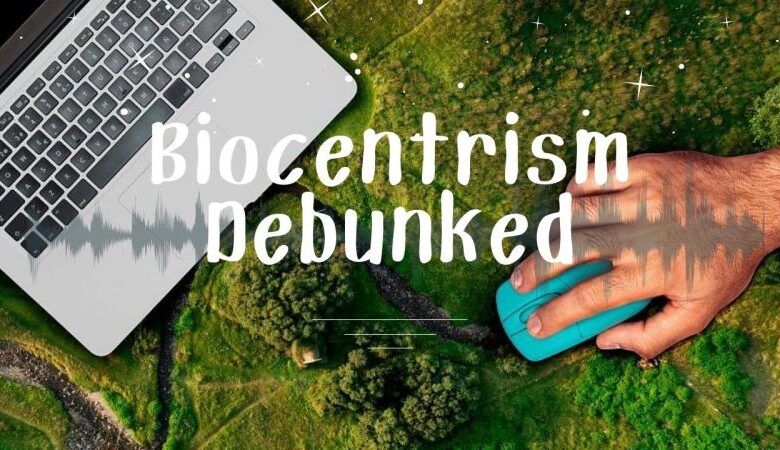Introduction of Biocentrism Debunked
Delve into the depths of biocentrism debunked, exploring its controversies and revealing the truth behind this intriguing concept.
In the realm of philosophical and scientific discourse, biocentrism has sparked both fascination and controversy. Advocates of biocentric theories argue for a worldview that places life at the center of existence, challenging traditional anthropocentric perspectives. However, amidst the allure of this concept lies a web of skepticism and critique. In this comprehensive article, we embark on a journey to debunk the myths surrounding biocentrism, shedding light on its validity and implications.
The Origins of Biocentrism
Embarking on our exploration, it’s vital to understand the roots of biocentrism. Originating from the Greek words “bios,” meaning life, and “kentron,” meaning center, biocentrism proposes that life is the central organizing principle of the universe. This concept contrasts with anthropocentrism, which places humans at the pinnacle of existence.
The Biocentric Universe Theory
Central to biocentrism is the notion that consciousness creates reality, asserting that life and biology are essential to the cosmos’ existence. Proponents of this theory, such as Robert Lanza, advocate for a paradigm shift that acknowledges the fundamental role of life in shaping the universe’s fabric.
The Influence of Quantum Mechanics
Biocentrism draws inspiration from quantum mechanics, particularly the observer effect, which posits that the act of observation influences the behavior of particles. This connection between consciousness and reality forms the crux of biocentric arguments, intertwining scientific principles with philosophical inquiries.
The Debate Unveiled: Biocentrism Debunked
Scientific Rebuttal: Critiques from the Academic Sphere
While biocentrism offers a novel perspective, it faces substantial criticism from the scientific community. Skeptics argue that biocentric theories lack empirical evidence and fail to meet the rigorous standards of scientific inquiry. Moreover, the extrapolation of quantum principles to macroscopic phenomena remains a contentious point, with many scholars dismissing it as speculative.
Philosophical Implications: Ethical and Moral Dilemmas
Beyond scientific scrutiny, biocentrism raises profound ethical and moral questions. Critics contend that prioritizing life above all else could lead to impracticalities and inconsistencies in moral frameworks. Furthermore, the anthropocentric perspective persists in various societal structures, posing challenges to the widespread adoption of biocentric ideologies.
Exploring Alternative Perspectives
Amidst the fervent debate surrounding biocentrism, it’s essential to acknowledge alternative viewpoints that offer nuanced insights into our relationship with the environment and each other.
Ecocentrism: Embracing Holistic Environmental Ethics
Ecocentrism diverges from both anthropocentrism and biocentrism, advocating for a holistic approach that recognizes the intrinsic value of ecosystems. By prioritizing the well-being of the environment as a whole, ecocentrism offers a comprehensive framework for addressing pressing environmental challenges.
Deep Ecology: Cultivating a Sense of Interconnectedness
Deep ecology delves into the interconnectedness of all living beings, Biocentrism Debunked emphasizing the intrinsic worth of non-Biocentrism Debunked human life forms. Rooted in spiritual and philosophical traditions, deep ecology encourages individuals to transcend anthropocentric boundaries and cultivate a sense of kinship with nature.
Addressing Common Misconceptions
Myth: Biocentrism Disregards Human Importance
Contrary to popular belief, biocentrism does not diminish the significance of humans but rather seeks to redefine our relationship with the environment. Biocentrism Debunked By recognizing the interconnectedness of all life forms, biocentrism advocates for a harmonious coexistence that benefits both humans and the broader ecosystem.
Myth: Biocentrism Promotes Radical Environmentalism
While biocentrismBiocentrism Debunked aligns with environmentalist values, Biocentrism Debunked it does not inherently endorse radical or extremist ideologies. Instead, biocentrism fosters a balanced approach to environmental stewardship, Biocentrism Debunked emphasizing sustainability and biodiversity Biocentrism Debunked conservation.
FAQs (Frequently Asked Questions)
- Is biocentrism a scientifically proven concept? Biocentrism remains a subject of philosophical speculation rather than empirical validation. While it offers intriguing insights, it lacks conclusive scientific evidence to support its claims.
- Does biocentrism advocate for the exclusion of humans from environmental concerns? Biocentrism emphasizes the interconnectedness of all life forms, including humans. Rather than excluding humans, it encourages a shift towards holistic environmental stewardship that benefits both humanity and the ecosystem.
- How does biocentrism differ from anthropocentrism? Anthropocentrism places humans at the center of existence, prioritizing human interests above all else. In contrast, biocentrism acknowledges the intrinsic value of all life forms, advocating for a more inclusive and ecologically sustainable worldview.
- Can biocentrism inform ethical decision-making? While biocentrism offers valuable insights into our relationship with the environment, its application in ethical frameworks remains a subject of debate. Ethical decision-making requires a nuanced consideration of various perspectives, including biocentric principles.
- What role does consciousness play in biocentric theories? Biocentrism posits that consciousness is fundamental to the universe’s existence, shaping reality through observation and perception. However, the precise nature of consciousness and its implications for biocentric principles remain subjects of philosophical inquiry.
- Is biocentrism compatible with religious beliefs? Biocentrism intersects with various religious and spiritual traditions, offering a lens through which individuals can interpret their beliefs. While some may find resonance with biocentric concepts, others may reconcile them with existing religious frameworks.
Conclusion
In conclusion, the discourse surrounding biocentrism transcends scientific inquiry to encompass ethical, philosophical, and existential considerations. While skeptics question its validity and practicality, biocentrism continues to inspire introspection and dialogue about humanity’s place in the cosmos. By critically examining its tenets and implications, we gain a deeper understanding of our interconnectedness with the web of life.





